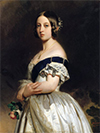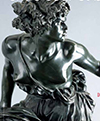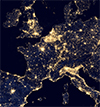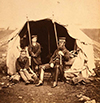| |
| |
AN IDEA OF EUROPE
The idea of Europe does not date from 1957 and goes far beyond the Treaty of Rome [The Treaty establishing the European Economic Community (TEEC)]. This week's letter largely bears witness to this, with the announcements of the launch of a bilingual French-English encyclopedia under the title “Écrire une nouvelle histoire de l'Europe” (ENHE – Writing a New History of Europe) and also the Study Days organised on the theme of Britain and Europe. These two projects look back in time as far as Antiquity to explain how Europe came to be made up the way it is today. The first of these projects, to be conducted over a period of eight years by three French universities (Paris-I, Paris-IV and Nantes), and exploring seven themes (Europe as a product of a materialist civilisation: Europe in flux; Europe as a political epistemology; European humanism or the construction of a Europe ‘for oneself' - affirmation and identity crises; Europe, the Europeans and the world; Europe at war and the material and psychological consequences; Gender and European identities; National traditions, migrations and identities in the Art of Europe), aims at reviewing and renewing the historiography of Europe. The 13th European History Study Days in Paris, organised by the Historians' Association and the University of Paris-IV, propose a reflexion on the relationship between Great Britain and the continent, from the Roman Conquest to Churchill. These themes and questions shed light on most of the conflicts - whether geographic, political or social - that affect the European Union today. Take for example, the Crimea and the Black Sea. We do not need to look back as far as the kingdom of the Scythians and affairs related to the Chersonesus to understand the strategic importance of this peninsula: our painting of the month, which speaks of the Congress of Paris of 1856 in the aftermath of the war between France (allied with Great Britain) against Russia, reminds us how recently these lands were the subject of fierce disputes between East and West. The results achieved after the negotiations during the Congress of Paris were a fine example of diplomacy after violent conflict, thanks notably to the political will of Napoleon III. 160 years later, let us hope the near future will see a return of Concert of Europe.
Marie de Bruchard
Web editor for napoleon.org/fr
CERCLE D'ÉTUDES > FONDATION NAPOLÉON LECTURES
Pierre Branda will talk about his new biography Joséphine ou le paradoxe du cygne on 26 January at 6pm at the Fondation Napoléon in Paris. If you would like to attend don't forget to enrol from 20 January (details here in French).

|
|
|
| |
PAINTING OF THE MONTH > THE CONGRESS OF PARIS, 25 FEBRUARY - 30 MARCH 1856
Edouard-Louis Dubufe's painting of the Congress of Paris had pride of place at the Salon of 1867, in the room specifically dedicated to the Crimean War, in which one-time enemies France (under Napoleon III) and Great Britain had joined forces to defeat Russia. Whilst the composition clearly harks back to Isabey's painting of the Congress of Vienna of 1815 which recorded the reorganisation of Europe in the wake of the downfall of Napoleon I, this time the French Empire is positioned as resolutely central to the concert of Europe, under the watchful eyes of both Napoleon III and Napoleon I…

|
|
|
| |
EARLY PHOTOGRAPHY > THE CRIMEAN WAR
Roger Fenton's photographs of the Crimean war were a very early example of war photography and, as this article points out, “like the Crimean war itself teetered on the border between the past and modernity”. (external links)
BOOK > The Crimean War was covered by a large corps of photographers, illustrators and cameramen. Indeed, the reports were so carefully orchestrated that Ulrich Keller, in his book The ultimate spectacle, a visual history of the Crimean War, describes it as the first media war in history.
Many observers have discussed the fact that in one of Fenton's most famous images The Valley of the Shadow of death, canon balls appear to have been rearranged to accentuate the drama of the image. In this extensive essay Errol Morris goes in search of which came first the chicken or the egg. (external link).
(image: Roger Fenton Colonel Brownrigg C.B. & the two Russian boys Alma & Inkermann).

|
|
|
| |
 |
 |
STUDY DAYS > BRITAIN AND EUROPE
The relationship between Britain and Europe is the focus of the thirteenth edition of the “European History Days” which will take place on 22-23 January at the Centre Malherbes Sorbonne. (Paris, France). Several of the lectures relate to the periods of the First and Second Empires, namely:
- La Premier puissance mondiale et l'Europe (1815-1914) by Fabrice Bensimon, professor at the University of Paris-Sorbonne
- L'Angleterre, l'Europe et les rivalités coloniales (XVIIe -XXe siècle) by François-Joseph Ruggiu, professor at Paris-Sorbonne.
- L'Angleterre et la Révolution française : (1789-1815) by Jean-François Dunyach, lecturer at Paris-Sorbonne
- La révolution industrielle anglaise et son expansion en Europe by Jean-Pierre Poussou, emeritus professeur at Paris-Sorbonne
- Les arts romantiques anglais et l'Europe (1750-1850) by Marie-Madeleine Martinet, emeritus professeur at Paris-Sorbonne
- La peinture paysagiste anglaise, de Gainsborough à Turner (XVIIIe -XIXe siècle) by Pierre Wat, professor at Panthéon-Sorbonne
- Les Anglais et la musique, de 1750 à 1918 by Danièle Pistone, professor at Paris-Sorbonne
The full program is available here (in French).

|
|
|
| |
ONLINE RESSOURCES
> 180,000 new items on the website of the New York Public Library
The New York public Library has just made available online more than 180,000 additional digitalised images and documents. Endless hours of virtual browsing await you, indeed among the items you can view or download there are no less than 2,452 on the topic "Napoleon"…
> Encyclopedia for a new history of Europe
Since 11 January 2016, a project "Ecrire une nouvelle histoire de l'Europe" (ENHE, "Writing a new history of Europe") has launched a website exploring the evolution of Europe over the centuries. Articles as well as images will be made available on themes such as war, art, networks and migrations, great ideologies and political debates, and in the near future should also be available in English.

|
|
|
| |
 |
 |
LAST DAYS > EXPOSITIONS AT COMPIEGNE (FRANCE)
Two exhibitions at the Imperial Palace of Compiègne are celebrating artists of the Second Empire (until 1 February 2016). The first, Marcello (1836 - 1879). Femme artiste entre cour et bohème, explores the life and work of the little-known artist, Adèle d'Affry, otherwise known as the Duchess of Castiglione Colonna, who was torn between her artistic aspirations and the expectations of her social background. Widowed at the age of twenty, she first exhibited at the Salon in 1863 (under the pseudonym “Marcello”) where one of her three sculptures was noticed by Empress Eugénie, and thus began her collaboration with the Imperial court.
Compiègne is also home to the most important collection of works by Thomas Couture, whose work is the subject of a second exhibition there (also until 1 February). There is a special focus on the monumental canvas "The Baptism of the Prince Imperial", commissioned by Napoleon III which can be seen (together with a number of studies and preparatory sketches) as part of a group visit at 2.30pm each day (external links in French).
Wishing you an excellent Napoleonic week!
Peter Hicks and Rebecca Young
THE NAPOLEON.ORG BULLETIN No. 785, 15-21 January, 2016
Interested in the work of the Fondation Napoléon? Why not participate, either generally or towards a specific project, by making a donation?

|
|
|
|
|
|
|
|
Follow us on our new English-language Facebook page and on Twitter!
napoleon.org - related content:
BOOK OF THE MONTH:
BRANDA, Pierre, Joséphine. Le paradoxe du cygne (Perrin, 2016)
WHATS ON (see our website for all events)
Exhibitions
- Thomas Couture, Palais de Compiègne, FR [17/10/2015-1/2/2016] LAST DAYS
- Marcello (1836 - 1879). Femme artiste entre cour et bohème, Palais de Compiègne, FR [17/10/2015-1/2/2016] LAST DAYS
- Franceschini-Pietri, Napoleon III's secretary Palais Fesch, Ajaccio , Corsica [27/11/2015 - 09/05/2016]
- Delacroix et l'antique (Delacroix and Antiquity), Musée Delacroix, Paris, FR [09/12/2015 - 07/03/2016]
- Ingres, Museo Nacional del Prado, Madrid, Spain [24/11/2015 - 27/03/2016]
- High Spirits: The Comic Art of Thomas Rowlandson The Queen's Gallery, Buckingham Palace, London UK [13/11/2015 - 14/02/2016]
- Land of conquest and mystery: Napoleonic Egypt in Bologna, Civic Museum of the Risorgimento in Bologna, Italy [28/11/2015 - 16/01/2016] LAST DAYS
- Le secret de l'État. Surveiller, protéger, informer. XVIIe-XXe siècle, Archives Nationales, Paris [04/11/2015 - 28/02/2016]
- Visages de l'effroi : violence et fantastique de David à Delacroix, Musée de la Vie Romantique, Paris, FR [03/11/2015 - 28/02/2016]
- Napoléon (1769-1821), sa vie à travers les femmes, Tourist Centre of Wool and Fashion, Verviers, Belgium [10/10/2015 - 28/02/2016]
- Splendeurs et misères. Images de la prostitution, 1850-1910 (Splendour and Misery. Pictures of Prostitution), Musée d'Orsay, Paris, France [22/09/2015 - 17/01/2016] LAST DAYS
Talks
Pierre Branda: "Joséphine le paradoxe du cygne" Fondation Napoléon, Paris, FR [26/1/2016]
SEEN ON THE WEB
- 7 Reasons Why Napoleon Should Have Lost in Italy
- War and Peace: Tolstoy's rejection of the 'Great Man' theory
- War and Peace: The incest question discussed
- St Helena gets ready for tourism take-off
- Thomas Manning archive reveals the burocracy of Napoleonic France
THE BIBLIOTHÈQUE MARTIAL-LAPEYRE FONDATION NAPOLEON LIBRARY
The library is normally open on Mondays and Tuesdays from 1pm to 6pm and on Thursdays and Fridays from 10am to 3pm. The library is closed on Wednesdays.
Online database catalogue
Digital Library
Contact
NAPOLEONICA LES ARCHIVES
Site of digitised Napoleonic archival material:
The working papers or 'imprimés' of the Napoleonic Conseil d'Etat, the correspondence of Vivant Denon, etc.
http://www.napoleonica.org
Contact: napoleonica@napoleon.org
NAPOLEONICA. LA REVUE
International peer-review interdisciplinary e-review on the history of the two Empires, bilingual French-English, 3 issues per year, free access.
Read the review on Cairn.info
Contact: napoleonicalarevue@napoleon.org
The Fondation Napoléon's Institutional website:
www.fondationnapoleon.org
ACCOUNT DETAILS
To change your email address, unsubscribe, and sign up for the French information bulletin.
Problems with a link in this letter?
- Check the homepage on: http://www.napoleon.org/en/home.asp
- View back numbers of the bulletin: http://www.napoleon.org/en/space/information_bulletin/archive_lettre.asp
- Contact us: information@napoleon.org
|
|







